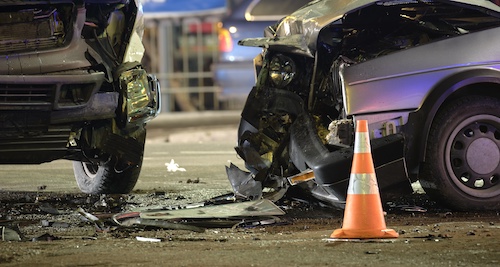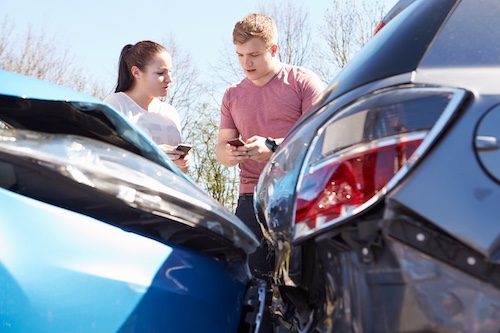Is Georgia a No-Fault State for Car Accidents? Understanding Your Rights After a Crash
If you were involved in a car accident in Georgia, you might be wondering who pays for the damage and medical bills. The answer depends on Georgia’s fault-based insurance rules. Unlike some states, Georgia is not a no-fault state for car accidents, which means the driver who caused the crash is responsible for the costs. Understanding how fault works, how to file an insurance claim, and what your legal options are can help you seek the compensation you deserve.
In this blog, we explain how Georgia’s at-fault system works, what it means for your insurance claim, and how working with an experienced Atlanta car accident lawyer can help you recover full compensation after a crash.
What Does “No-Fault State” Mean in Car Accident Law?
Understanding whether Georgia is a no-fault state for car accidents starts with knowing what a no-fault system means in auto insurance law.
No-Fault Insurance Basics
In a no-fault state, each driver’s own insurance company pays for their medical expenses and lost wages after a car accident, regardless of who caused the crash. This system is meant to reduce legal disputes and speed up insurance claims. It typically involves personal injury protection (PIP) coverage, which is mandatory in no-fault states.
How No-Fault Insurance Affects Car Accident Claims
In a no-fault system, accident victims do not need to prove that the other driver was at fault to receive compensation for medical bills or certain economic losses. They file a claim with their own insurance company. However, these benefits are usually limited. Victims may not be able to recover for pain and suffering or other non-economic damages unless their injuries meet a specific threshold.
No-Fault vs. At-Fault States
Georgia is not a no-fault state. Georgia uses a fault-based system, meaning the driver who caused the accident is legally responsible for the damages. In Georgia, car accident victims typically seek compensation from the at-fault driver’s insurance company. This includes claims for medical expenses, property damage, lost wages, and pain and suffering.
Georgia’s At-Fault System Explained
Georgia is an at-fault state, which means the person who causes a car accident is legally and financially responsible for the resulting damages.
Fault Determines Legal and Financial Responsibility
In Georgia, the driver who is at fault for a car crash must pay for the losses suffered by the other driver and passengers. This includes medical bills, property damage, lost wages, and pain and suffering. The at-fault driver’s insurance company is usually responsible for covering these costs, up to the limits of the policy.
How Fault Affects Insurance Claims
Because Georgia follows a fault system, the person injured in a motor vehicle accident has several options. They can file a claim with their own insurance company, file a third party liability claim with the other driver’s insurance company, or file a personal injury lawsuit in court. The choice depends on the extent of the damages and how the insurance companies respond.
Georgia’s Modified Comparative Fault Rule
Georgia uses a rule called modified comparative fault, found in O.C.G.A. § 51-12-33. This means that if the injured person is partly responsible for the accident, their compensation will be reduced by their percentage of fault. If they are 50 percent or more at fault, they cannot recover any damages.
Importance of Proving Fault
Proving fault is essential in any Georgia car accident claim. Insurance companies rely on police reports, physical evidence, and witness statements to decide who caused the crash. A car accident lawyer can help collect and present the right evidence to show the other party was at fault. This can make a difference in how much financial compensation a victim receives.
Determining Fault After a Georgia Car Accident
In Georgia, identifying who caused the car accident is the first step in filing a claim and recovering compensation.
Role of Evidence in Proving Fault
To determine fault, insurance companies and attorneys examine key evidence from the accident scene. This includes the police report, photographs of vehicle damage, road conditions, and witness statements. Sometimes surveillance footage or vehicle data may also support the claim. The goal is to show which driver failed to follow traffic laws or acted carelessly.
Police Reports and Their Impact
A police report can strongly influence how fault is assigned. Officers who respond to a vehicle crash document their observations and may give one driver a citation. While not final proof, these reports are often used by the auto insurance company when deciding which driver is at fault.
Comparative Fault and Insurance Decisions
Georgia applies the modified comparative fault rule, which reduces compensation based on a driver’s share of blame. If a person is found 20 percent at fault, their total award will be reduced by 20 percent. If the driver is 50 percent or more at fault, they cannot recover damages. This system makes clear evidence and proper documentation essential when filing a car accident claim.
How Insurance Companies Decide Fault
The driver’s insurance company, along with the other driver’s insurance company, will conduct their own investigations. Adjusters review evidence, statements, and repair costs. They may argue over who holds more responsibility. If fault is disputed, a personal injury lawsuit may be needed to settle the matter and allow accident victims to seek financial compensation.
Options for Seeking Compensation After a Georgia Car Crash
After a car accident in Georgia, victims have several ways to recover financial losses, depending on who caused the crash and the type of insurance involved.
Filing a Claim with Your Own Insurance Company
If you have collision coverage or medical payments coverage, you can file a claim with your own insurance company. This may help cover property damage, medical bills, or lost wages while fault is being investigated. Keep in mind that your insurer may later seek repayment from the at fault driver’s insurance company through a process called subrogation.
Filing a Third Party Claim with the Other Driver’s Insurance Company
If the other driver is at fault, you can file a third party liability claim with their insurance company. This is the most common way to recover full damages, including medical expenses, vehicle repairs, and pain and suffering. You will need to provide proof that the other driver caused the crash.
Filing a Personal Injury Lawsuit
If the insurance coverage is not enough or the insurance company denies your claim, you can file a personal injury lawsuit. This legal action allows car accident victims to seek full and fair compensation through the court system. A car accident lawyer can represent you in gathering evidence, proving fault, and showing the total cost of your injuries and losses.
What Each Option Covers
The type of claim you file determines what you can recover. Claims may include medical costs, property damage, lost income, and pain and suffering. If a serious injury occurred, your best chance at full compensation may be through legal action rather than an insurance claim alone.
Choosing the Right Path After a Crash
Each case is different. The right option depends on how the accident occurred, the amount of coverage available, and how the insurance companies respond. A car accident attorney can help you understand your options and file the proper car accident claim within legal deadlines.
Contact an Experienced Atlanta Car Accident Attorney Today!
If you were hurt in a car accident and are unsure how to handle the insurance claim, prove fault, or recover your losses, our team at Atlanta Metro Law is here to help. We understand how Georgia’s at-fault system works and what it takes to build a strong case. An experienced car accident lawyer from our firm can guide you through every step, from gathering evidence to negotiating with the insurance company.
Contact us at 864-894-2045 for a free case consultation!
source https://atlantametrolaw.com/is-georgia-a-no-fault-state-for-car-accidents/




No comments:
Post a Comment